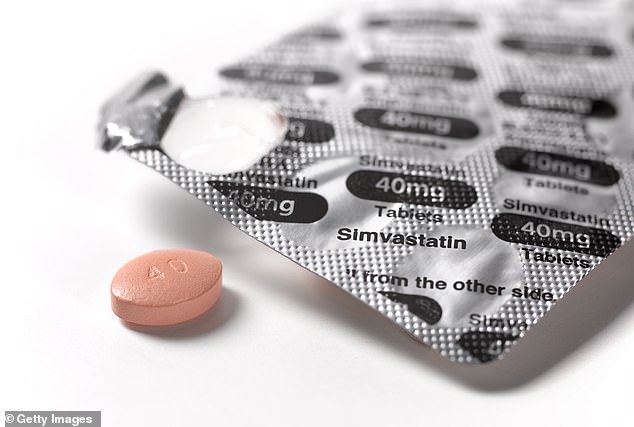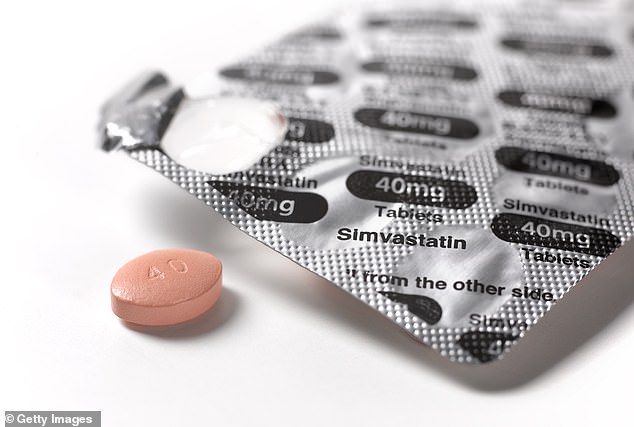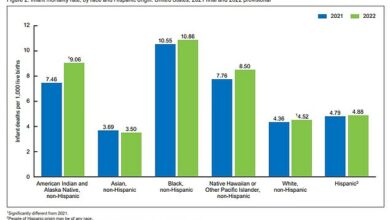Statins for the heart may also reduce the risk of developing more than 20 different types of cancer, as well as reduce the number of deaths from heart disease.



A study shows that statins may reduce the risk of developing more than 20 types of cancer and also reduce deaths from heart disease.
The risk of serious cancers, including breast, prostate and cervical cancer, is halved in patients taking cholesterol-lowering pills.
Researchers consider the discovery a major breakthrough in the fight against cancer.
In the study, Chinese academics used a British database containing 15 years of health data from almost 400,000 patients, and based on that, they came to groundbreaking conclusions.
They say lipid [fatty compound] Lipid-lowering drugs – mainly statins – can have several anti-cancer effects, including reducing inflammation and preventing the growth and multiplication of malignant cells. The researchers said: ‘We found that lipid-lowering drugs, particularly statins, were associated with a reduced risk of 21 types of cancer.

Statins may reduce the risk of developing more than 20 types of cancer, as well as deaths from heart disease, a study finds (stock image)
‘It could be a promising strategy to repurpose these drugs for cancer prevention.
‘Lipid-lowering drugs protect against the development of cancer, suggesting that they may have a potential cancer-preventive effect in the general population.’
However, experts stress that further research is needed following the study, which appeared in the journal iScience.
The researchers used data from the UK Biobank, which has collected health and other information on 500,000 people since 2006.
The team identified 383,784 people for the study, including 114,451 new users of lipid-lowering drugs.
Information on the men and women, including any cancer diagnoses and the date patients were prescribed lipid-lowering drugs, was retained for an average of 12.8 years.
The results show that new users of statins have a lower risk of leukemia, lymphoma, multiple myeloma, melanoma, prostate cancer, ovarian cancer, cervical cancer, breast cancer, lung cancer, liver cancer, esophageal cancer, stomach cancer, colon cancer, colorectal cancer, skin cancer, bladder cancer, kidney cancer, thyroid cancer, pancreatic cancer and brain cancer. The risk reduction for individual cancers ranged from 38 to 66 percent.

The risk of serious cancers, including breast, prostate and cervical cancer, is halved in patients taking cholesterol-lowering pills (stock image)
Use of lipid-lowering drugs was also associated with a 70 percent lower risk of dying from cancer over time, compared with non-users. The researchers from Shandong University Hospital and other centers in China said: ‘Lipid-lowering drugs may have a preventive effect on cancer by reducing chronic inflammation, a key factor in the development of many malignancies.’
Around eight million British adults take lipid-lowering drugs such as statins. First used in the UK in the 1980s, statins reduce fatty deposits in the arteries and have been a game-changer in the fight against heart disease.
Previous research on statins and individual cancers has yielded mixed results, with some cancers showing positive effects and others showing negative effects.
The new study is observational, and while the team showed a link between statins and a reduced risk of cancer, it was not designed to determine whether the drugs were responsible for the reduction.
Jayant Vaidya, professor of surgery and oncology at University College London, said: ‘More research is needed. The lower risk found was independent of the duration of statin use, so the association may not be causal.
“Regardless, the cardiovascular benefits are reason enough to discuss its use jointly by a physician and patients.”




